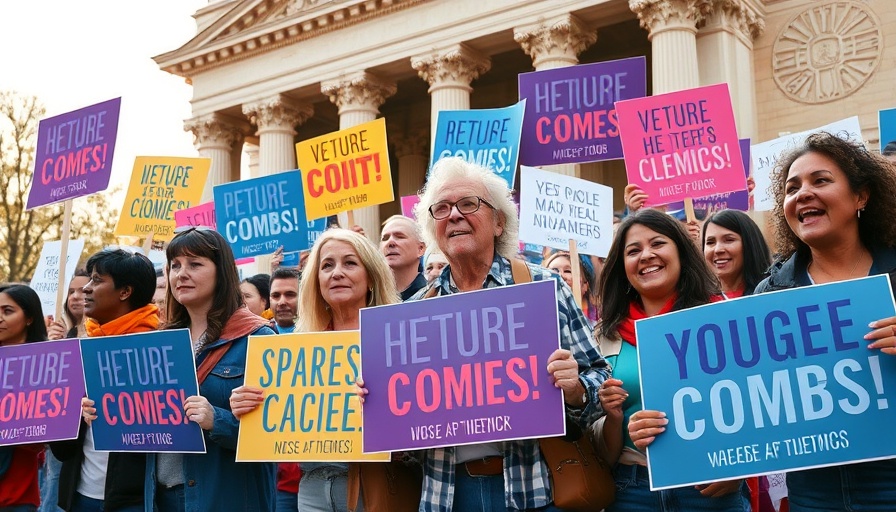
The Ongoing Battle Over Abortion Rights
In the most recent shift in the complex landscape of abortion rights, the Trump Administration made headlines by rescinding emergency guidance concerning abortion care. This move has sparked extensive debate and concern among healthcare professionals and advocates alike, primarily due to its implications for women's health. As this situation unfolds, it is crucial to understand the ramifications of this policy change and how it will affect residents across the Grand Strand of South Carolina and beyond.
Understanding the Rescinded Guidance
The Biden-era guidance was implemented as a means to reaffirm the obligations of healthcare providers under the Emergency Medical Treatment and Labor Act (EMTALA). This federal law mandates that hospitals provide stabilizing treatment to patients experiencing medical emergencies, with implications for pregnant individuals needing necessary care. With its rescindment, the Trump Administration aims to clarify the legal landscape; however, many fear this could instead contribute to increased confusion and ultimately compromise patient care.
Healthcare Professionals Weigh In
Numerous healthcare professionals view this policy decision with concern. Dr. Jamila Perritt, an ob-gyn, emphasized the challenge that this new directive poses, saying, "This action sends a clear message: the lives and health of pregnant people are not worth protecting." As healthcare providers grapple with the implications, questions arise about the moral and ethical responsibilities they hold to their patients. The uncertainty could result in doctors hesitating to administer critical care due to fears of punitive state actions.
The Impact on Residents in the Grand Strand
For communities in the Grand Strand—places like Myrtle Beach, North Myrtle Beach, and Surfside Beach—this policy change could lead to significant disruptions in healthcare access. The removal of federal protection may lead to a reluctance among healthcare facilities to perform abortions even in emergency situations, leaving patients in precarious positions. The proximity of such legislation to local communities enhances the need for residents to stay informed and proactive about their health rights.
Legal and Ethical Considerations
This recent development has reignited discussions on the intersection of healthcare and legal obligations. While EMTALA remains unchanged, healthcare providers may fear legal repercussions for situations that require an abortion to protect the health of a mother. This situation could lead to a divergence between what medical professionals know to be best in emergency situations versus what state laws dictate.
Future Predictions and Trends in Abortion Rights
As states continue to grapple with abortion laws in the wake of the Supreme Court overturning Roe v. Wade, many foresee an ongoing battle over reproductive rights. Residents may soon face even more questions regarding their access to healthcare and the quality of services available to them. Awareness is key as these changes unfold, and South Carolinians must remain informed about local healthcare legislation and its implications.
Call to Action
In light of these ongoing developments, we encourage residents of the Grand Strand to engage with their healthcare providers, understand their rights, and advocate for accessible reproductive health services within their communities. Join local advocacy groups, educate yourself and others about these changes, and stay connected with healthcare news affecting our region. Your voice matters in shaping the future of healthcare access in the area.
 Add Row
Add Row  Add
Add 





Write A Comment